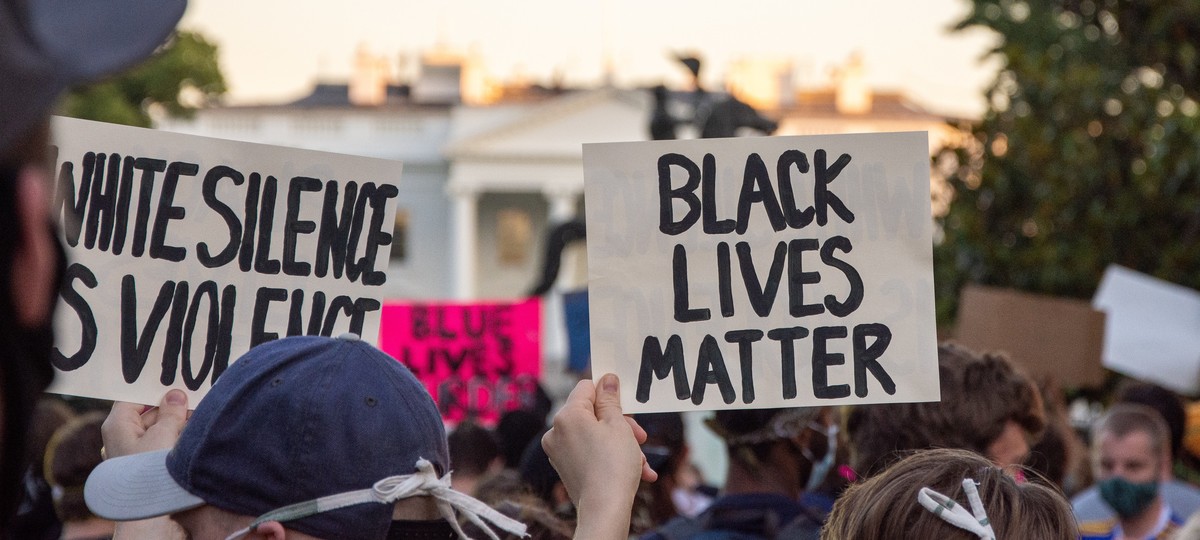
This transition is significant. It is deliberate. And it is dangerous.
Focusing on "discrimination," as our laws have done for decades, places the emphasis on conduct , which can be clearly identified and prohibited. Individuals (or groups) who engage in that prohibited conduct can be penalized.
Punishing an attitude of racism, however, is more problematic. It is one thing to condemn it. But how do you penalize or sanction it, apart from the conduct that reflects it?
Contemporary race theorists and activists have chosen to expand their definitions even further to encompass what they now call "systemic racism" and "white privilege." These newer, broader definitions of the reprehensible sweep much wider swaths of people into the "racism" net, no matter how beneficent and inclusive their personal attitudes and actions may be.
According to these theories, one is culpable simply for having "benefitted" from a system in which blacks and other minorities were — and are — discriminated against. "Race" is not only a "social construct"; it becomes a matter of economic identity, rather than ethnic identity.
Even nonwhites who have succeeded in this system become "white" by virtue of that success. Conversely, whites who have endured poverty, discrimination, broken homes, substance abuse or countless other factors beyond their control that have impeded their own upward mobility are told that those struggles are irrelevant to their "privilege."
It is one thing to acknowledge that blacks have suffered grievous discrimination, and that the consequences of that continue to this day. Those are the ugly facts. Similarly, when white Americans — or anyone who has not personally endured bias and discrimination — vow to do everything in their power to make their community and our country a better place, that is individual agency, not collective guilt.
But some of the current calls for "honest conversations" entail members of the "privileged" classes admitting to collective culpability. This is cast as a precursor to "healing," and many well-intentioned people are more than willing to do it. I have read tweets and emails, and watched videos in which white Americans kneel, bow their heads in supplication, beg for forgiveness for the wrongs committed by other people or refer to themselves as "recovering racists" simply because they are white.
This is insulting, offensive and dangerous.
First, it runs completely counter to one of the most fundamental tenets of the American legal tradition: We do not punish people for the crimes or wrongdoing of others.
Second, there is no natural place where one can logically stop with the collective culpability racket. If I as a "white" American of multi-European ethnicities have "benefitted" from the political and economic systems in the United States, one could just as plausibly argue that I benefitted from the Irish Potato Famine, the Inquisition, the Thirty Years' War, the bubonic plague, the sacking of the library at Alexandria and every other historical event that somehow made it possible for me to be who and what and where I am at this moment. I am no more responsible for the abhorrent acts committed during the era of slavery, or the Jim Crow laws, or the brutality of corrupt police officers than I am for those atrocities.
Third, there is plenty of modern precedent to show us what happens when a country incorporates a system of collective culpability purportedly to remediate oppression. The Reign of Terror during the French Revolution sent tens of thousands of innocent people to the guillotine. Tens of millions were killed during Russia's and China's revolutionary upheavals of the 20th century, condemned as "bourgeois" or "running-dog capitalists." Even in tiny Cambodia, nearly 3 million people — a fifth of the population — were murdered by the communist Khmer Rouge regime, which condemned anyone who was educated as an "enemy of the poor."
Fourth, a system that blames classes of people for things they have not individually done also exonerates classes of people for things they have individually done. We need look no further back than the events of the past few days, as mobs of violent individuals have used justifiable outrage and lawful protests as a cover for vandalism, arson, looting, theft, destruction, brutal assault and even murder. And yet there are voices in our "national conversations" that would excuse this behavior as an understandable response by the oppressed in a system that is rigged against them.
Such a system will not long endure; it will collapse on itself.
As we watch our cities burn, we cannot fool ourselves by thinking that what happened in France in the 1790s, in Russia in the 1930s, in China in the 1960s and in Cambodia in the 1970s cannot happen here. We owe it to ourselves and our children to make sure that it doesn't happen here.
We can punish police brutality without smearing all police officers. We can acknowledge destructive policies and practices of the past and present; work together to eliminate them; and improve conditions for those who have been most negatively affected. But a move from individual responsibility to collective culpability will destroy our nation.
History has proven — amply — that a political system founded upon class resentment, blame, hatred and violence destroys everything and helps no one.
(COMMENT, BELOW)
Laura Hirschfeld Hollis is on the faculty at the University of Notre Dame, where she teaches courses in business law and entrepreneurship. She has received numerous awards for her teaching, research, community service and contributions to entrepreneurship education.


 Contact The Editor
Contact The Editor
 Articles By This Author
Articles By This Author